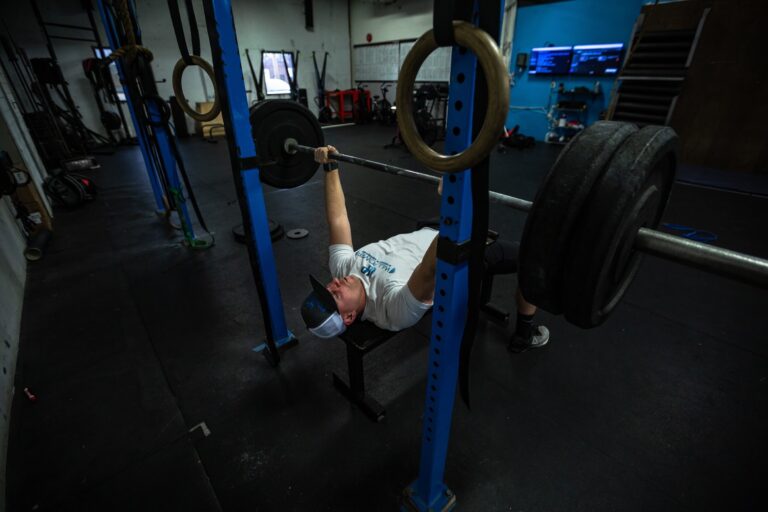How Much Protein Do You Absorb In One Sitting?
Related products to this Blog Post:
Optimum Whey Gold Standard Protein (I have used this for 5+ years) – https://amzn.to/43jdZFl
Dymatize ISO100 Hydrolyzed Protein Powder – https://amzn.to/3MLaLF7
Orgain Organic Vegan Protein Powder – https://amzn.to/3q0WJpZ
As an affiliate partner of various brands and sponsored content, WillPower Strength & Nutrition may earn commission on qualifying purchases
How much protein can your body actually absorb when you are trying to maximize muscle, building, performance, and/or fitness? If you ask ten different coaches, athletes or nutritionists, you may get 10 different answers. Some may give you a hard number or others may disregard the question altogether. Citing that there is no evidence for any amount you can absorb in one sitting. But which answer is correct?
My Response:
When I am asked this question, I tend to position my answer somewhere in the middle. Just as almost all answers to common questions in fitness and nutrition tend to sit. My response to this question is this; your body will absorb any amount of nutrients that you consume. Once the food you eat is broken down through the mechanical and chemical digestion process, the small intestine absorbs all the nutrients present and then excretes the waste. If there is enough protein in the meal, muscle protein synthesis begins. If the nutrients in the food you consume in a single meal are in excess such as excess protein or too many total calories they are converted and then stored. Typically as adipose tissue or fat.
Muscle Protein Synthesis
With that being said, the topic of protein absorption does not actually refer to how much is absorbed…Stay with me here.
It refers to how much you can stimulate the process of muscle protein synthesis or the creation of protein (muscle growth) within the body. I assume that over time these two processes may have been blended together to create a question that seeks an answer to one topic but asks another. Meaning when someone asks “how much extra protein can the average person absorb” what clients are actually asking is “how much extra protein can my body use for muscle growth”.
The Leucine Threshold
To answer this question we refer to what is called the Leucine Threshold. Leucine, one of the nine essential amino acids (the building blocks of protein) which must be consumed in the diet is the prime regulator of muscle protein synthesis. Thus, if our goal is to maximize muscle growth and its associated benefits such as increased muscle building, strength, body composition, fitness etc. Getting enough Leucine in the diet is mandatory. The actual foods that contain a significant amount of Leucine will typically be animal proteins such as chicken breast, dairy products, beef because they are considered “complete proteins”. This is also why many Vegetarians who consume primarily plant-based proteins like pea protein or protein from whole grains have trouble sustaining or improving lean muscle tissue without meticulous management of their dietary protein and essential amino acids. Often times through the use of protein powder and protein shakes when building muscle.
Determining Total Protein Needs
To determine the protein needed to reach your Leucine Threshold, you will simply multiply your body weight in kilograms (bw in lbs / 2.2) by .4. Once this number is achieved through the consumption of animal proteins, muscle protein synthesis can be assumed to be maximally stimulated for muscle gain. When consuming plant-based proteins, the actual Leucine amount must be calculated which generally sits around 3-4g in a single meal.
Circling back to the original question of how much protein the body absorbs / uses on a high-protein diet, once the Leucine Threshold is reached, no more amount of protein or Leucine ingestion will increase the degree of muscle protein synthesis. However, just because there is a limit to how much protein synthesis you can maximally stimulate in one sitting, the same is not true for how many times you can maximally stimulate muscle protein synthesis throughout the day. This is why total protein intake is also very important in healthy adults. Ideally, high-protein meals would be spread evenly throughout the day containing around 20-30 grams of protein until total protein requirements are achieved for the day. The more frequently you can stimulate muscle protein synthesis throughout the day, the more time can be spent in the muscle growth process and theoretically, the more muscle building will occur if total calories are also taken care of.
For ex.
Client A) – Weight 180lbs / 81.81kg
– Needs 180g of protein (1g / lb of BW)
– Only eats 2 meals of 90g of protein each.
Client B) – Weight 180lbs / 81.81kg
– Needs 180g of protein (1g / lb of BW)
– Eats 5-6 meals of 32.5g of protein each.
Based on the above examples, we’ll assume both client A and client B require the same amount of protein per kilogram of body weight per day based on current research found in the journal of the International Society of Sports Nutrition, body size, activity, and their goals. You can see that both clients reach their total protein goals, but, client B will spend significantly more time throughout the day in muscle protein synthesis because he will reach his Leucine Threshold 3 more times each day. Whereas client A will only maximally stimulate it twice and in turn not build as much muscle mass. Client B’s protein consumption strategy is what you should strive for if your fitness goals include muscle growth, weight loss, improving performance, or optimizing body composition.
The ideal question to ask is not necessarily how much protein your body will absorb. But, how much protein should I consume in a single meal to maximally stimulate muscle protein synthesis and then how often can I stimulate it while also reaching my recommended dietary allowance of dietary protein for the day.
To answer this question for yourself, use the equation I have outlined above and then multiply this number as many times as needed to satisfy your total daily protein requirements. Not only will you eat enough protein per day but you will also maximize the time you are in the muscle building state and maximize the time you spend resistance training.







